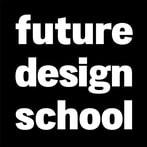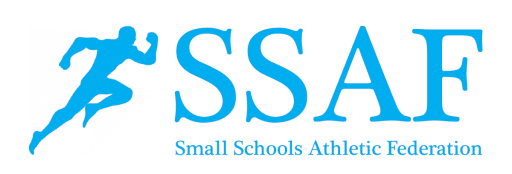Academic Excellence
At Wishing Well Elementary School, we teach one academic year ahead in an enriched, gifted learning environment. We follow the Ontario Curriculum, and also integrate the curriculum of the UK, Alberta, Australia and the United States in to our teaching and learning. Our lessons are rigorously planned to ensure that we meet and exceed provincial teaching standards and fully challenge each child to reach their highest level. We believe in a student-centred teaching environment where students are at the heart of the learning process and act as investigators and problems solvers.
Math and Language Arts
We have dedicated Math and Language Arts teachers from Grades 5 to 8. Students are provided with a minimum of 350 minutes of Math each week and a minimum of 500 Language Arts minutes each week. Most of our students graduate Grade 8 with the skills to succeed in advanced AP and IB programs across the GTA in public, Catholic and competitive private secondary schools. Our Math and Language Arts programs are far above grade level and do not focus only on skills, but thinking, problem solving and deep analysis. Students are also exposed to advanced media courses, with podcasting, film analysis, media literacy, news broadcasting, and film studies being taught as part of the Language Arts Curriculum.
Coding, Robotics, 3D Printing, Drones and Computer Science
We begin teaching coding in Grade 1 with dedicated weekly lessons in coding. In order to make coding meaningful outside of the lesson time, students incorporate their knowledge of coding into robotic design and problem solving with a cross curricular, project/problem based approach. As students become more adept at coding, they are able to use a variety of coding languages. By Grade 6, students are regularly expected to use 3D printing in their projects and are required to code their print with knowledge, not with templates.
Design Thinking
Wishing Well Schools strongly believes that empathy and global awareness are crucial to our students' success. We use Design Thinking to guide our cross curricular project based learning starting in Grade 1. Our students follow the Design Thinking process to solve real world problems, strengthening empathy, collaboration skills, critical thinking, and creativity. The design thinking process allows us to ensure that our students are using 21st century skills in the classroom.
21st Century Skills in the Classroom
Wishing Well Schools values the tools of 21st century learning, including:
History, Geography, Science,
We teach the new Ontario Curriculum for History, Geography and Science and utilize a variety of resources to tap into the curriculum objectives. Without Project Based learning approach, students are not exposed to exclusively 'sit and get' lessons, but are required to investigate, experiment, and connect with the curriculum in order to more deeply understand its relevance to their lives.
Design and Technology/Engineering
Our Design and Technology curriculum has been introduced to students to instill skill that are fundamental in today's world. Students engage in project based learning in many areas, such as textiles, engineering, architecture, horology, food technology, and robotics. With a cross-curricular approach to the units, students utilize skills from several subject areas to learn about a topic and create a prototype for presentation.
French
Students at Wishing Well Schools have French every day starting at the age of 3. We teach French every day and when our students graduate, they are fluent and usually reach the top of their class in Grade 9, often continuing with French throughout their high school years.
The Arts
The arts hold equal value at Wishing Well Schools and we take the philosophy of the Scotland curriculum to heart. Music, Dance, Drama and Visual Arts are all integrated within the curriculum, and are also exclusively taught once a week. Our whole school Arts Festival and Winter pageant focus on the arts and students love this creative time to hone their artistic skills.
Physical Education
We take our physical education very seriously at Wishing Well. Students have Phys Ed three times a week and every morning they have DPA to start the day. We have many clubs and are members of the SSAF where our students can compete against other small schools in a variety of sports.
Standardized Testing - Why? When?
We administer the CAT4 test in October for Grades 1 to 8. These test results provide us with a snapshot of how well our students achieve as compared to 60,000 other students across Canada, informing our teaching for more effective planning for the students in our classroom. We do not believe that standardized tests should be used as a stand alone measure of achievement, but as a tool to measure where a child may need additional enrichment or support. We test in October in order to effectively plan for the year.
Professional Development - Staying Relevant in a changing educational world
Our teaching staff engage in regular professional development and have a strong Professional Learning Network both in and out of our school environment. Collaboration is the key to our planning success as we strive to integrate the most relevant and student-centred teaching practices into our daily lesson plans.
Math and Language Arts
We have dedicated Math and Language Arts teachers from Grades 5 to 8. Students are provided with a minimum of 350 minutes of Math each week and a minimum of 500 Language Arts minutes each week. Most of our students graduate Grade 8 with the skills to succeed in advanced AP and IB programs across the GTA in public, Catholic and competitive private secondary schools. Our Math and Language Arts programs are far above grade level and do not focus only on skills, but thinking, problem solving and deep analysis. Students are also exposed to advanced media courses, with podcasting, film analysis, media literacy, news broadcasting, and film studies being taught as part of the Language Arts Curriculum.
Coding, Robotics, 3D Printing, Drones and Computer Science
We begin teaching coding in Grade 1 with dedicated weekly lessons in coding. In order to make coding meaningful outside of the lesson time, students incorporate their knowledge of coding into robotic design and problem solving with a cross curricular, project/problem based approach. As students become more adept at coding, they are able to use a variety of coding languages. By Grade 6, students are regularly expected to use 3D printing in their projects and are required to code their print with knowledge, not with templates.
Design Thinking
Wishing Well Schools strongly believes that empathy and global awareness are crucial to our students' success. We use Design Thinking to guide our cross curricular project based learning starting in Grade 1. Our students follow the Design Thinking process to solve real world problems, strengthening empathy, collaboration skills, critical thinking, and creativity. The design thinking process allows us to ensure that our students are using 21st century skills in the classroom.
21st Century Skills in the Classroom
Wishing Well Schools values the tools of 21st century learning, including:
- Critical thinking, problem solving, reasoning, analysis, interpretation, synthesizing information
- Research skills and practices, interrogative questioning
- Creativity, artistry, curiosity, imagination, innovation, personal expression
- Perseverance, self-direction, planning, self-discipline, adaptability, initiative
- Oral and written communication, public speaking and presenting, listening
- Leadership, teamwork, collaboration, cooperation, facility in using virtual workspaces
- Information and communication technology (ITC) literacy, media and internet literacy, data interpretation and analysis, computer programming (coding)
- Civic, ethical, and social-justice literacy
- Economic and financial literacy, entrepreneurialism
- Global awareness, multicultural literacy, humanitarianism
- Scientific literacy and reasoning, the scientific method
- Environmental and conservation literacy, ecosystems understanding
- Health and wellness literacy, including nutrition, diet, exercise, and public health and safety
History, Geography, Science,
We teach the new Ontario Curriculum for History, Geography and Science and utilize a variety of resources to tap into the curriculum objectives. Without Project Based learning approach, students are not exposed to exclusively 'sit and get' lessons, but are required to investigate, experiment, and connect with the curriculum in order to more deeply understand its relevance to their lives.
Design and Technology/Engineering
Our Design and Technology curriculum has been introduced to students to instill skill that are fundamental in today's world. Students engage in project based learning in many areas, such as textiles, engineering, architecture, horology, food technology, and robotics. With a cross-curricular approach to the units, students utilize skills from several subject areas to learn about a topic and create a prototype for presentation.
French
Students at Wishing Well Schools have French every day starting at the age of 3. We teach French every day and when our students graduate, they are fluent and usually reach the top of their class in Grade 9, often continuing with French throughout their high school years.
The Arts
The arts hold equal value at Wishing Well Schools and we take the philosophy of the Scotland curriculum to heart. Music, Dance, Drama and Visual Arts are all integrated within the curriculum, and are also exclusively taught once a week. Our whole school Arts Festival and Winter pageant focus on the arts and students love this creative time to hone their artistic skills.
Physical Education
We take our physical education very seriously at Wishing Well. Students have Phys Ed three times a week and every morning they have DPA to start the day. We have many clubs and are members of the SSAF where our students can compete against other small schools in a variety of sports.
Standardized Testing - Why? When?
We administer the CAT4 test in October for Grades 1 to 8. These test results provide us with a snapshot of how well our students achieve as compared to 60,000 other students across Canada, informing our teaching for more effective planning for the students in our classroom. We do not believe that standardized tests should be used as a stand alone measure of achievement, but as a tool to measure where a child may need additional enrichment or support. We test in October in order to effectively plan for the year.
Professional Development - Staying Relevant in a changing educational world
Our teaching staff engage in regular professional development and have a strong Professional Learning Network both in and out of our school environment. Collaboration is the key to our planning success as we strive to integrate the most relevant and student-centred teaching practices into our daily lesson plans.

